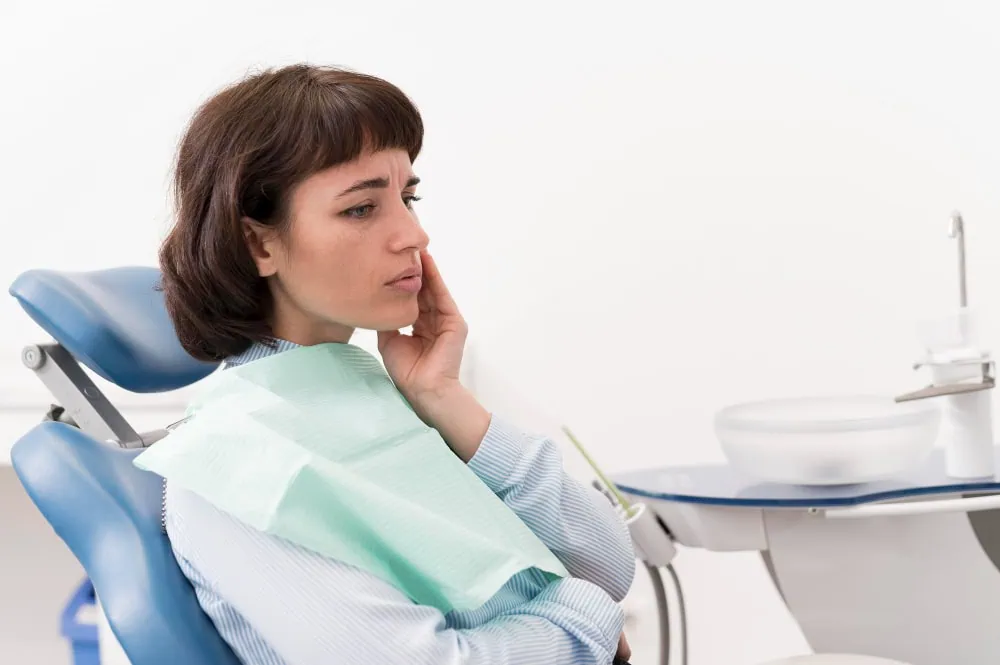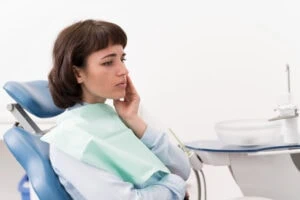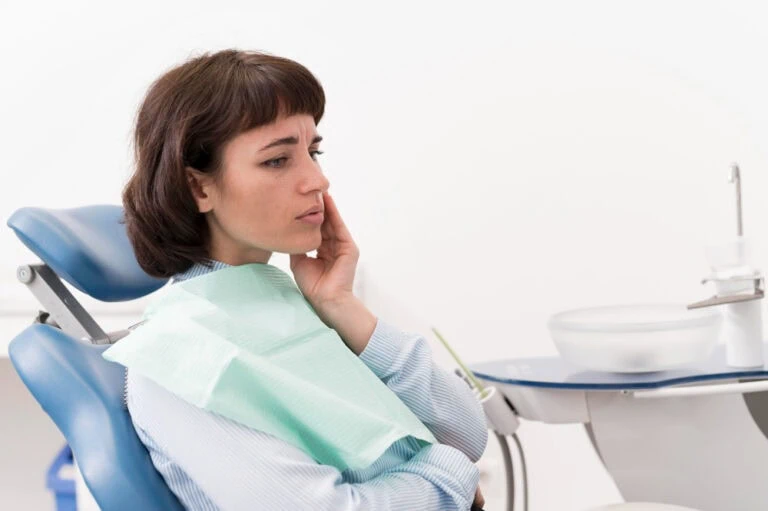Learning how to stop grinding teeth can protect your smile and improve your quality of life. At Neola Dental in Minneola, FL, we help patients overcome bruxism with effective treatments. According to the American Dental Association, teeth grinding affects millions of people. Understanding how to stop grinding teeth starts with recognizing the causes and solutions.
What is teeth grinding?
Teeth grinding, also known as bruxism, is a condition where individuals unconsciously clench or grind their teeth. While occasional grinding may not cause harm, frequent cases can lead to dental damage, headaches, and jaw disorders. The condition can occur during the day or at night.
Bruxism is classified into two types:
- Awake Bruxism: Clenching teeth while conscious, often triggered by stress or deep concentration.
- Sleep Bruxism: Grinding that occurs during sleep, often associated with sleep disorders like apnea.
Causes of teeth grinding
Several factors contribute to bruxism:
- Stress and Anxiety: High stress levels commonly trigger this condition.
- Misaligned Teeth: Improper alignment of upper and lower teeth can cause bruxism.
- Sleep Disorders: Conditions like sleep apnea link to nighttime grinding.
- Medications: Certain medications, including antidepressants, increase bruxism likelihood.
- Caffeine and Alcohol: Excessive intake can worsen the condition, especially before bedtime.
Risk factors for bruxism
Certain individuals are more susceptible to this condition. Risk factors include:
- High-stress levels or aggressive personality traits.
- Family history of bruxism.
- Young children, though the habit often fades with age.
- Medical conditions like Parkinson’s disease or GERD.
How to stop grinding teeth with proper diagnosis
Detecting bruxism early prevents further complications. Your dentist can help identify the problem and recommend treatment options.
Dental examination methods
A dentist diagnoses bruxism through visual examination of dental wear and damage. They evaluate symptoms like jaw pain, headaches, or facial discomfort. Patient-reported concerns about grinding noises during sleep also help with diagnosis.
Sleep studies for diagnosis
In some cases, a sleep study evaluates nighttime clenching. These studies determine whether underlying sleep disorders contribute to bruxism and help create an effective treatment plan.
Medical treatments to stop grinding teeth
Effective treatments vary depending on severity. Professional intervention often provides the best results.
Prescription medications
Medications may help in severe cases:
- Muscle relaxants before bedtime reduce jaw clenching.
- Anti-anxiety medications address stress-induced bruxism.
- Botox injections relax overactive jaw muscles.
Mouthguards and splints
Custom-made mouthguards are essential for nighttime protection. These devices create a barrier between upper and lower teeth, preventing damage. At Neola Dental, we create custom-fitted mouthguards for optimal protection.
Lifestyle changes to stop grinding teeth
Certain lifestyle modifications significantly reduce bruxism occurrence. These natural approaches help prevent the condition without medication.
Stress management techniques
Since stress is a major cause, techniques like meditation, deep breathing, and therapy help manage anxiety. These approaches reduce clenching naturally.
Good sleep hygiene
Improving sleep habits helps prevent nighttime bruxism:
- Maintain a consistent sleep schedule.
- Avoid electronic devices before bedtime.
- Create a relaxing nighttime routine.
Avoid stimulants
Reducing caffeine and alcohol intake, especially in the evening, decreases muscle activity. Avoiding smoking also helps reduce bruxism symptoms.
Natural remedies for bruxism
For those seeking alternative solutions, natural remedies can provide relief from teeth clenching.
Jaw stretches and exercises
Performing jaw stretches relieves tension in jaw muscles:
- Gentle jaw stretches loosen tight muscles.
- Massaging the jaw reduces tension.
- Warm compresses relax muscles before bed.
Dietary changes
A balanced diet rich in magnesium and calcium supports healthy muscle function. These nutrients help prevent bruxism naturally.
Professional dental solutions
Professional dental care is crucial for severe bruxism cases.
Custom-fitted mouthguards
A dentist creates custom-fitted mouthguards to protect teeth from damage. These are more effective than over-the-counter guards, providing a precise fit tailored to your bite.
Orthodontic treatments
Misaligned teeth or improper bite can contribute to bruxism. Orthodontic treatments like braces or Invisalign correct alignment issues and help eliminate the problem permanently.
Learn how to stop grinding teeth at Neola Dental
At Neola Dental in Minneola, FL, our experienced team helps patients overcome bruxism with personalized treatment plans. We offer custom mouthguards, orthodontic solutions, and comprehensive dental care.
Ready to protect your teeth? Schedule your consultation today and discover effective solutions for bruxism. Contact our dental specialists to get started!

Josaida Contreras is a Doctor of Dental Surgery and Endodontics specialist with nearly 20 years of experience. Educated in both Latin America and the U.S., she continues to expand her expertise through advanced training in implant dentistry.







